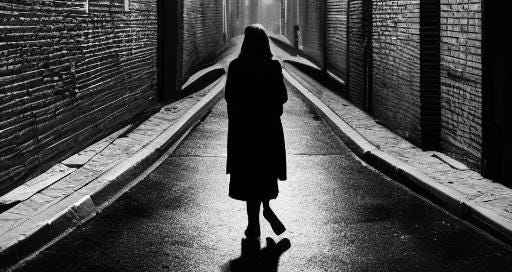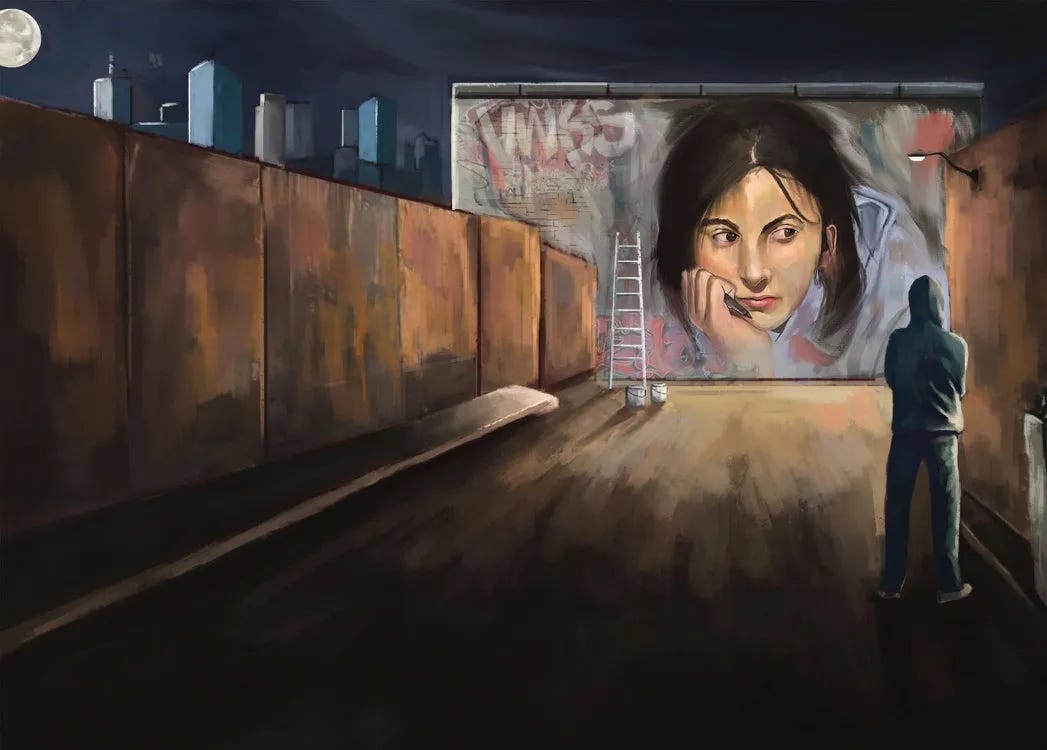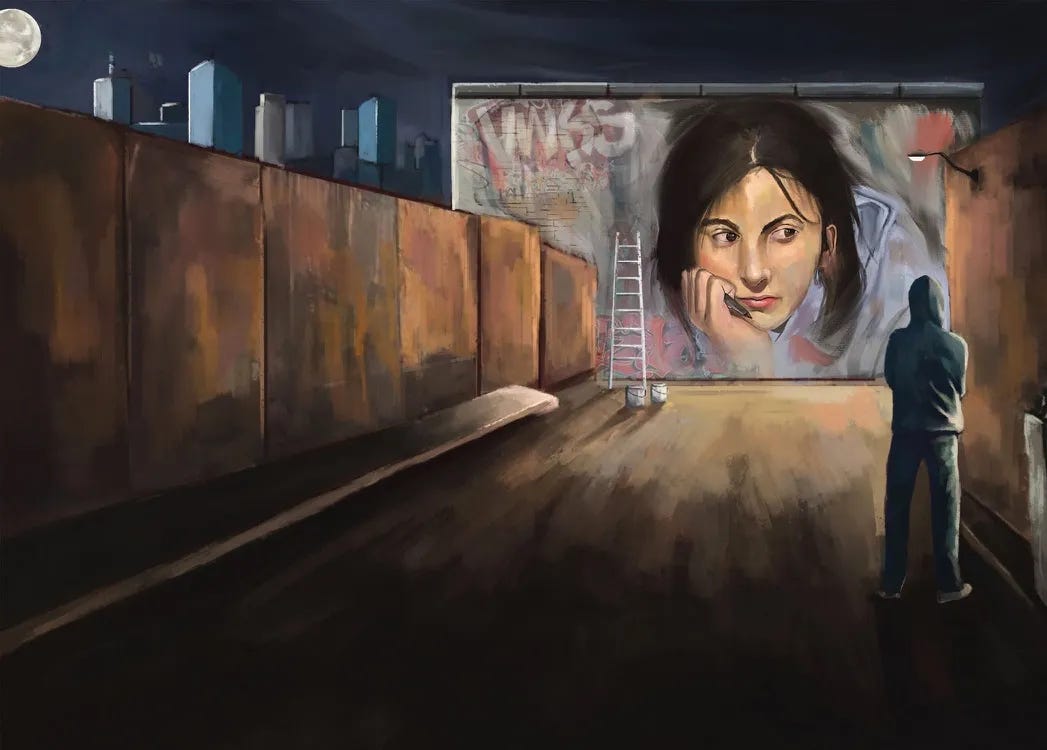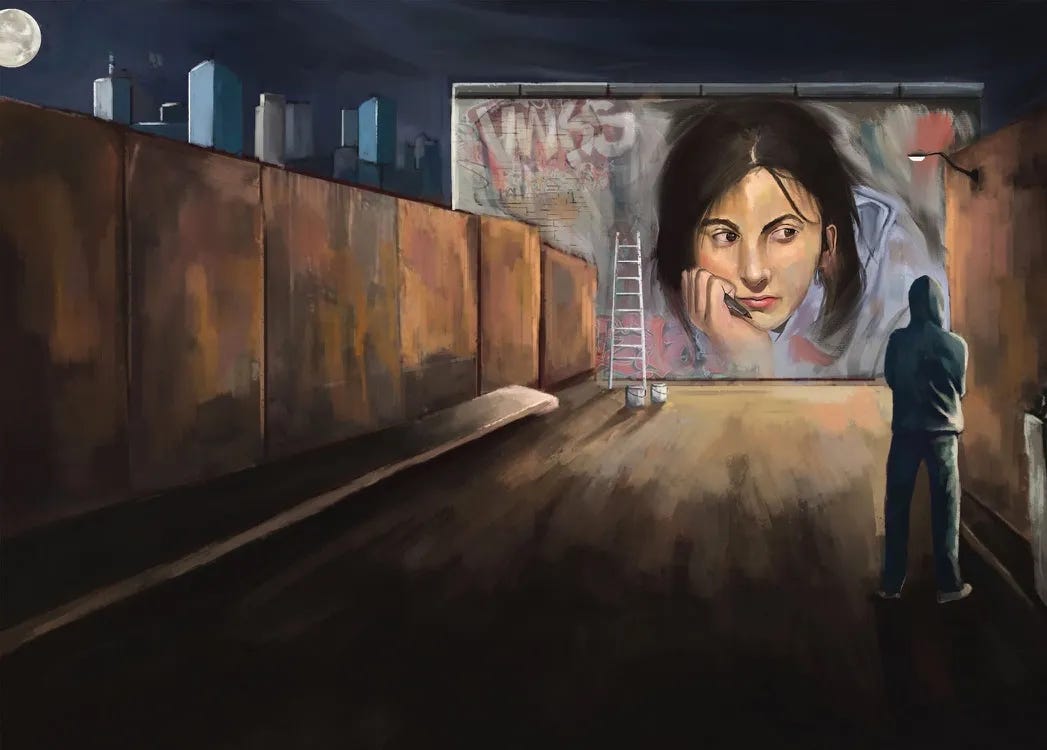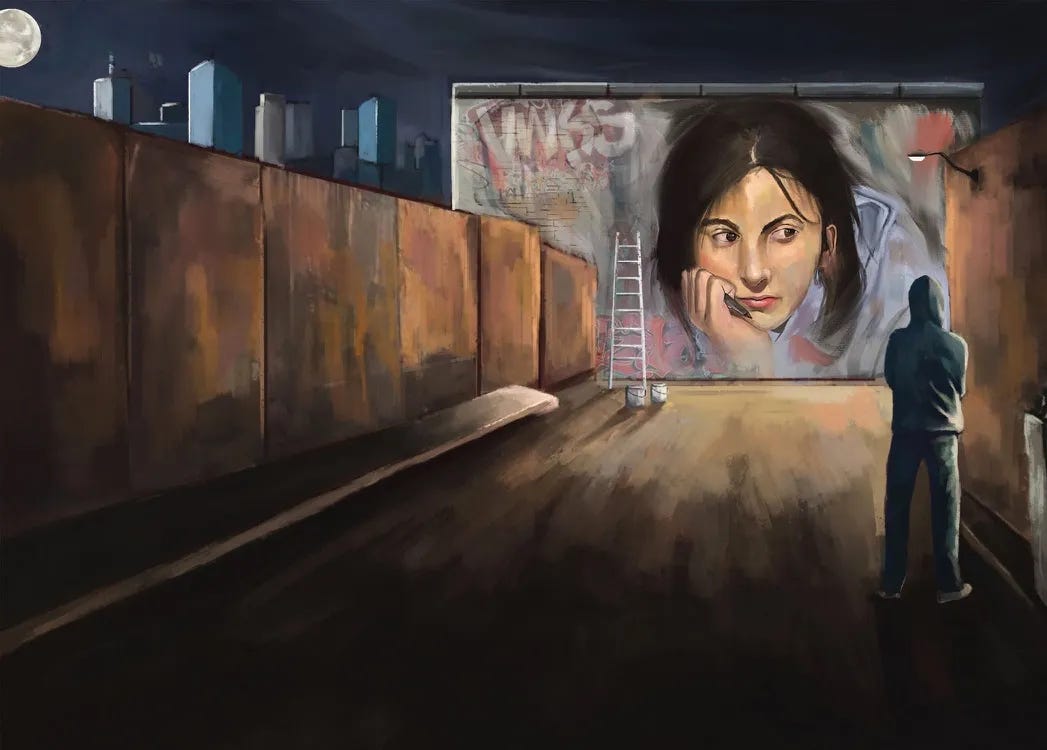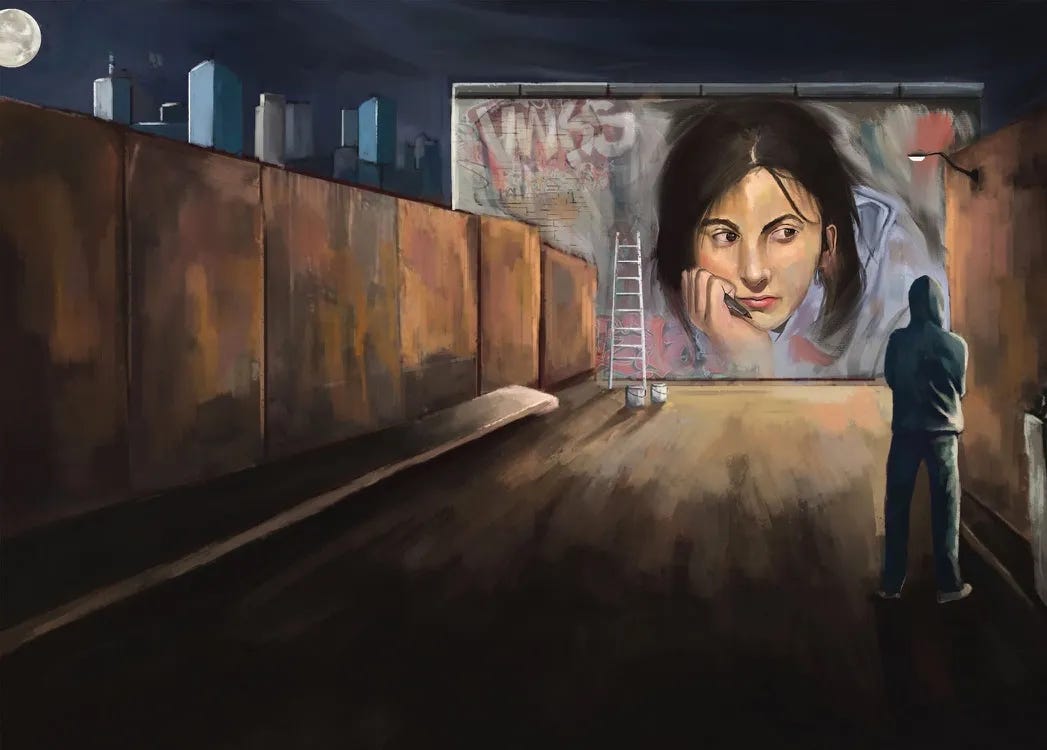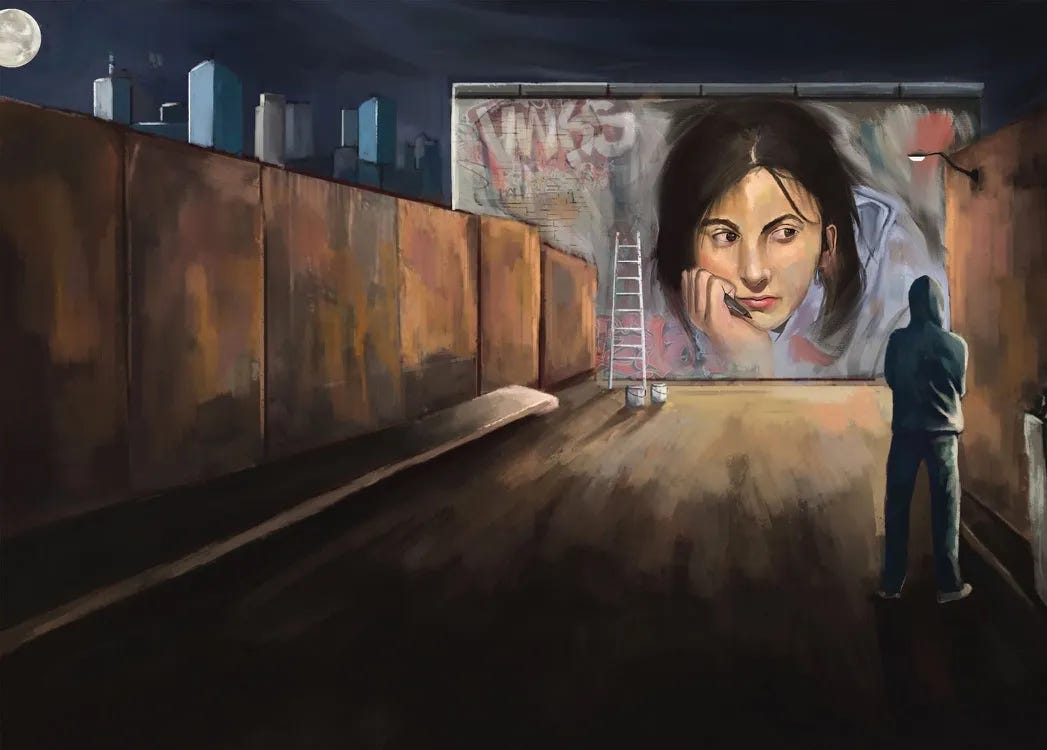Elliot Sullivan sits at his desk this Monday morning. It’s Week 5 of the term. He thinks back to last week’s disturbance. He has been decisive. He has, once again, through his instinctive nose for what needs to be done, nipped a potential crisis in the bud. He has acted, and order has been restored.
What was she thinking, that Molly McInness, when she marked those Year 10 Common Test responses? Why is it that a teacher with brains enough to pass the necessary assessments in a teacher education course doesn’t have brains enough to follow a simple procedure?
This could have turned nasty, but for his timely intervention. Tran’s father, Hieu Pham, is not to be messed with. Chairperson of the school board. Respected member of the local community. Member of the local council and talked about as a potential mayor.
But Elliot has handled it well. The initial meeting with Mr Pham had been tense to begin with, but Elliot had successfully expressed his surprise, then disappointment, then outrage at the actions of this relatively inexperienced woman. He’d deliberately said ‘woman’ rather than ‘teacher’, and it had been a good move. By the time Mr Pham left, Elliot was confident that he had engineered things so that there was a clear understanding between them that it was only when men like them stood shoulder to shoulder that some of the excesses of the current touchy feely brigade could be successfully resisted.
And he’d been firm with Molly as well. She would have sensed his firmness. Deep down she would have felt more secure because of it.
He thought back to his meeting with her at the beginning of the week. Chameleon-like, he’d transformed himself into the world-weary principal coping with an endless succession of unreasonable parents. ‘Love your work,’ he’d then said to Molly, though in fact he didn’t understand it. ‘I know your students do as well. But we must be vigilant. Overprotective parents will strike at any chink in our armour.’
He’d gone on to explain, carefully and thoroughly (and slowly too when necessary), how vital it was to mark student work according to clear criteria, how the whole educational enterprise rested on care taken with details. She would get better at this, he assured her. She would be helped to develop these crucial skills, both by him and by Rhonda. ‘We are on your side,’ he had said, perhaps more than once.
And she had listened carefully. She had not interrupted him. Nor did she have any questions at the end. It was clear that the necessary message had been delivered, that the ship’s course had been righted.
Being a principal has its rewards. He pours himself his first coffee of the morning. Each day there are significant little victories.
It has been a strange few days. She’d drunk too much wine last Friday night after the distressing conversation with Rhonda, the alcohol had turned fury into self-pity, and Molly had gone to bed feeling maudlin and teary. But she slept like the dead and woke up late on Saturday with an impatient cat pawing her cheek and the winter sunshine filling the room.
On a solitary walk later, the anger had returned. But it was a different kind of anger, one that felt energetic rather than debilitating. Fuck them, she’d muttered aloud. Fuck them all. She was going to teach the next month of this Year 10 unit in exactly the way she wanted. She would play the game on the outside, she’d fend off or circumvent or bust through obstacles. There was no Common Test now until next term. She was going to go for broke. She was going to smash through.
Accompanying the exciting resolve came a surge of bodily energy. She’d found herself striding out more quickly. Stories, Max had said in his email, animate; they do something to bodies. Thinking these thoughts was doing something to hers.
It is now Sunday night. Spread around the laptop on her kitchen bench are the scribblings of the past few frenetic hours. Phrases she’s copied from Max’s email: learning excites or animates, is experienced as desire, the natural urge, story not an object but a catalyst, story creates community. Thoughts she’s had about a next step for her Year 10 class: invite Max in again, students create stories, a communal sharing, exploration of their versions of the good, the beautiful, the just and the true.
And a good-enough statement that she’ll hand out to the students on Monday, describing their task for the next month.
Create an appropriation of a folk tale using a medium of your choice. Write a rationale (no longer than 1000 words) describing your aim and evaluating the result.
Tran will complain and Rodney will scoff. But she thinks Rhonda will approve. And there’ll be questions from the students that will lead to good discussion: What’s an appropriation? What appropriations are current in today’s world? Are there any media we can’t use? What’s the point of a rationale? What sort of aims are appropriate or allowed?
Molly picks up her phone and starts to text.
Max, any chance you could visit the Year 10 class again? Btw, yr email v. helpful.
The response is instant.
… Really? Last time not raging success.
Was good. Just one blip. And yes really.
… What do you want me to do?
Tell a story. Then we’ll get students talking about it.
… I’m game. Will bring protective armour. Thursday any good?
Thursday good. First lesson. Will let dogs loose at any sign of trouble.
… A deal. See you then.
C u then. Thx Max
… If you abbreviate everything, why not thx mx?
:-)
Zeph’s forehead rests against the window and he feels the train’s comforting sway. He was tired before school this morning but the English lesson woke him up. He’s still awake. Thinking. He can’t remember being interested in an English lesson before now. It’s a strange feeling. He’s not sure he likes it. He’s not sure he doesn’t like it.
He looks around on the off chance that Harriet is again in the same carriage. She’s not here. He’s disappointed. He’d like to talk to her about today. Listen to her talk about it.
Something has shifted.
This morning’s lesson began with the teacher talking about posters she’d put up around the room. Posters of mythological scenes. Some from the Dreamtime, he noticed. And from the rest of the world. From all over the place. Cool images. It was the Islamic ones that especially grabbed him. The colours: rich reds, deep blues, vibrant yellows and oranges and greens. Black borders. Geometric patterns. Kings or prophets on horses. Armies. It was cool. He wishes he had coloured paints like that. Or the skill or time to draw those patterns.
He tried to listen to what the teacher was saying. He wanted to know what these posters had to do with English, why she was talking about them. Which one draws you in? he’d heard her ask. He knew which ones drew him in. Ask yourself why, she had said. He had no idea. He just loved them. I want you to choose one, she had instructed. That was easy. The one with the Islamic warrior fighting a dragon. The dragon has wrapped itself, like a snake, around the warrior’s body. The warrior is thrusting his sword down the dragon’s throat. He loved it.
How great it would be to be an artist in those times, producing stuff for rich people. Having the time. Getting money for creating.
Sometimes it doesn’t feel like creating. More like uncovering. Or something. It’s like the image is there, somewhere, and he just has to find it. He finds it as he draws. Sometimes. It feels really good when that happens. Like the shit in his life has faded. Or disappeared. For the time being.
Then the teacher was talking about their big project. Some of it he didn’t get. But he did hear her say something about a medium of your choice. A drawing, for example. Or a painting.
Zeph isn’t sure he’s heard her right. He wants to talk to Harriet about it.
Zeph now thinks back to the rest of the lesson. It had been a blur, confusing at times. But there was a kind of buzz in the air. He tried to listen but got tired. And distracted. He kept thinking about the warrior and the dragon.
There is something beckoning him in all of this. Is that the right word? Like an invitation. He isn’t sure if he likes this part of it. There is a kind of a pull that he feels. That he is being required to care? Or to be involved? It feels uncomfortable.
But he wants to talk to Harriet about it.
Apparently Harriet’s dad, or grandad, or uncle or something, is coming in to tell a story on Thursday. He came in once before but Zeph was drawing that day and didn’t really listen, except when it got a bit tense towards the end.
He’ll try to listen this time.
Sometimes telling a story, one that Max knows pretty much by heart, goes flat. He gets the key phrases just a little bit wrong and they fail to resonate. Or, for some reason, the audience seems dead and the lack of a response sucks the life out of the telling. But it seems that the flat ending of the last visit has so concentrated his mind and so sharpened his senses that from the moment he opens his mouth the room receives his story as if it were thirsty for it. Not a movement, not a wavering. Even Tran, leaning back in his chair at first and looking down his nose at Max as if relishing another battle of wits, soon settles and seems drawn into the rhythm and drama of the narrative, right from the story’s opening.
There was once a king who lay dying, and as he lay in pain upon his deathbed, he said ‘Send for Faithful John for I must give my last orders to him before I die’.
Max himself inhabits two worlds simultaneously as he tells the story, seeing in his mind’s eye every detail of the Faithful John’s adventures and at the same time watching as the students’ faces reflect their growing engagement. A pig-tailed girl in the front looks up through her fringe with mouth slightly open. A boy up the back whose face Max can barely see inside a hoody is leaning forward with chin on cupped hands.
Faithful John is given an impossible task by the king; he must prevent a particular door in the castle from ever being opened. Dire consequences will follow if he fails. He fails. A princess is tricked, kidnapped and married against her will. Black ravens predict a bleak future. A much-loved horse is murdered. A king’s flesh is burned down to the marrow. Faithful John is compelled to revive a dying queen by biting her right breast, extracting three drops of blood and spitting them out in full view of a shocked court. He is condemned to death for this outrage. There is a climax, a denouement, a resolution.
There follows a silence in the classroom, like the sombre silence in a church when the bread is made flesh. The hoody has fallen away from the face of the boy at the back, and for an instant their eyes meet before the boy looks quickly away.
Then Max speaks quietly.
‘As I was telling the story, you may have found yourself thinking particular thoughts, thoughts that either nagged away at you about what you were hearing, or that drifted in for a moment and then drifted out again. Or there may have been particularly feelings you felt at different times while you were listening. Would anyone like to talk about something they were thinking, or something they were feeling?’
There’s no response, just a slight shifting in some seats.
Then a hand goes up.
‘So what’s the moral of the story?’ says a red-headed boy. His name is Tony. Tony likes to know the point of things.
‘You found yourself wondering what the moral of the story was,’ says Max. Again there’s a silence.
‘Yes I was trying to work out what the moral of the story was.’
‘Perhaps,’ says Max, ‘not all stories have a moral.’
There’s a silence again. This time it’s an invitation for Max to say more.
‘I suspect that stories with an obvious moral to them … if you tell lies, you end up regretting it; slow and steady wins the race … that kind of thing … stories that have a single message to teach children to behave in certain ways … well I don’t find stories like that particularly interesting.’
‘But don’t all stories have a message?’ says Tony.
‘I think you’re asking a really important question. You are …?’
‘Tony.’
‘Tony, I think you’re asking a really important question. I want to come at it in a roundabout way if that’s OK.’
Max has noticed the posters along one of the classroom walls. Mythological scenes. He now walks from the front of the class and stands in front of them. He’s a teacher again and it feels good.
‘These are great,’ he says. He points to one. The one with the Islamic warrior fighting the dragon. As he points to it, Max notices a quickening from the boy with the hoody.
‘I want you all to have a careful look at this image. Then turn to the students around you and share your thoughts on what the moral of this image is.’
There’s a puzzled silence.
‘Images like that don’t have morals,’ says Tony.
‘Oh,’ says Max, affecting surprise. He looks around the room. ‘Can that be right?’ Harriet is smiling. Other students nod.
‘Right … well … sorry … no moral, eh? … OK, instead, please turn to the students around you and share thoughts on the message of this image … You’re silent? … It doesn’t have a message you say? No message? OK, forget that one. Instead, I want you to look carefully at this image.’
Max pauses. There’s a silence in the room, a good silence.
‘Allow yourselves to be drawn into the scene,’ he now says, reverting to his slow, rhythmic storyteller voice. Pause. ‘Into the struggle that’s taking place.’ Longer pause. ‘Perhaps, as you looked at the image, there were things you wondered … Or that you found yourself thinking about … Or perhaps there were feelings you felt … Take a minute or two to share these with the students around you.’
There’s a growing buzz of conversation. Some are clearly animated. Others, like the boy up the back, just listen.
‘So, anyone want to share what they were thinking or feeling?’ says Max.
‘I thought the dragon looked like a snake,’ says one.
‘I saw the sword going down the dragon’s throat and thought about my last visit to the dentist,’ says another and there’s a ripple of laughter.
‘I wondered if the dragon crept up on the warrior, or if the warrior’s task was to kill the dragon,’ says a third.
‘I wondered how it got drawn,’ says a voice from the boy at the back, and all the students turn. It’s obviously an unfamiliar voice in this classroom.
‘Notice,’ says Max, ‘how much there was to say when the task was to share your thoughts and feelings. The image evoked …’ Max can see that it’s not the right word for some. ‘The image caused a whole range of interesting thoughts. A whole range of interesting feelings. You had so much to say. Now think back to the other questions I asked, about the moral of the image, or the message of the image. Nothing. They were the wrong questions. The image exists to express and provoke thoughts and feelings, not to convey messages or morals.’ Max turns his attention to the red-headed boy. ‘Tony, it’s the same with stories like Faithful John. All the myths and legends and folktales you’re studying. They are told to express and provoke thoughts and feelings. Not morals or messages.’
‘But at school,’ says Tony, ‘we get tested on the meaning the author is trying to convey, and how the author uses techniques to convey meaning.’
‘Sounds deadly,’ says Max.
Molly smiles.
‘So, finally, to get back to Tony’s question. I think there is no single message in the story of Faithful John. Or no intended moral. It’s like the image. We tell stories like that because they evoke feelings and thoughts. That’s what good stories do. They draw us in. They unsettle us. They connect us. They make us wonder. They’re a part of our lives. They tell us about deep things.’
‘Like what?’ says Tony. ‘What does this story tell us? I thought you said it didn’t have a message?’
Max turns to Molly. There is just ten minutes to go before the lesson ends. What’s the best way to follow this up, his expression asks.
‘Mr Henderson,’ says Molly, then starts again. ‘Max is saying that the way into a story like this is to start with the thoughts and feelings we have as we listen, or as we think about it afterwards. I want you all to take out pen and paper, or tablets for those of you who use them, and we’re going to have one of our quick writing times. We’ll then follow this up in our next lesson. As usual, feel free to write what you want. It’s private, and though I’ll invite you to share your writing if you want to, there’s no compulsion. Feel free to write what you want. So, when you’re ready, I’ll start the timer. As usual, try to write for the whole time.’
Zeph hovered around Grandpa and me after the class this morning. We were standing at the school gate, talking about how well his lesson had gone, and I could see Zeph out of the corner of my eye, circling us like he wanted to say something. But every time I made eye contact, he would look away. I can’t make him out. He was so hard to work out on the train, one moment acting as if I was invading his space and the next trying to say something. That was two weeks ago, and we haven’t spoken to each other since.
Anyway, as soon as Grandpa had gone, Zeph approached.
‘Hi,’ I said.
‘I didn’t do it,’ he said. ‘I didn’t paint your face.’
‘That’s good,’ I said.
‘Is that your dad?’
I laughed. ‘My grandpa. Does he look like my dad? I’ll tell him, he’d love that!’
Zeph smiled. ‘I liked the story,’ he said.
‘Grandpa’s a great story teller.’
Zeph opened his mouth to say something more, but no words came out. He just stood there for a second, gawping. Then he shook his head, as if to break a paralysing spell.
‘OK, see ya,’ he said, and started to walk off. Then he turned around and looked at me.
‘I want to show you something,’ he said. ‘Not now. Can I show you something after school tomorrow?’
‘What is it?’
‘I’ll show you. Tomorrow after school. I’ll meet you here.’
‘Maybe,’ I said. ‘OK.’
That was it. As soon as I said I’d meet him, he disappeared.
I think I’ll go. I’m not doing anything after school tomorrow. I’m kind of intrigued.
I had such a great chat with Grandpa over dinner tonight.
I read Grandpa what I’d written in class about his story.
Thoughts and feelings about the story.
I loved listening to Grandpa tell it. I felt so proud, the way he had everyone eating out of his hand.
But I thought the story was weird. It made me feel uncomfortable. There were things in there that jarred; it was sexist and misogynist and unethical. I felt shocked, like this wasn’t a story that should be told in these more enlightened times. Once again it’s about kings and their male advisers. The princess is totally passive, a beautiful object of desire, who is kidnapped against her will, and instead of being angry, meekly agrees to marry the prince. Then these stupid ravens start telling the future within earshot of Faithful John; there’s no good reason why they suddenly start talking to each other, there’s no plausible trigger, they just start rabbiting on about what disasters are about to unfold and how they can be avoided, and of course Faithful John hears it. Then there are these ridiculous tasks that Faithful John has to perform, ridiculous and cruel and improbable, like shooting the king’s innocent horse dead, or biting the princess’s breast (for god’s sake!). And then the new king, in order to somehow release Faithful John from a spell, has to lop off his own children’s heads, an appalling act that his wife, the Queen, happily condones.
It was sexist, unbelievable and I couldn’t see the point.
I looked up from my page. Grandpa was smiling.
‘I hope you said those things in class.’
‘Why?’
‘Because stories like this work best when they stir things up. Did others think the same?’
‘I’m not sure. I didn’t say anything. It would have sounded disloyal to you.’
‘You’re a sweet girl Harriet. But say it. See what happens.’
Well I’ve said it here, to you, but you just smile. It hasn’t stirred anything up!’
‘You want me to argue with you.’
‘If you think I’m wrong.’
‘I agree with you that it’s a dated story, and sexist if you read it literally. A story written these days would play around with gender roles much more.’
‘So why tell it? What’s the point?’
‘Were you bored?’
‘No, just increasingly angry.’
‘Why weren’t you bored?’
‘What do you mean?’
‘There was something about the story that kept you involved.’
‘I guess. The way you told it?’
‘Maybe. But I don’t think you can tell a bad story well.’
‘So what was it? I have no idea.’
‘I think stories like these are riveting because they touch familiar chords in us. We recognise the dilemmas. We’ve experienced them ourselves.’
‘So Grandpa, when was the last time you kidnapped a princess or listened to a raven predict the future.’
Grandpa smiled. He was enjoying this. So was I. Sometimes, when he’s angry, he gets all frothy in the mouth, as if something buried gets prodded, and he becomes all dogmatic and unpredictable and a bit scary. Like he’s letting off steam being generated way below the surface. But not tonight.
‘Harriet, you’re being too literal.’
‘What do you mean?’
‘You found the ravens implausible. They suddenly appear out of nowhere and start talking to each other about inevitable disasters and how to avoid them, and – surprise surprise – Faithful John just happens to be standing nearby and so he hears this improbable conversation.’
‘It’s so ridiculous! It sounded ridiculous when you told the story and it sounds ridiculous now when you summarise it.’
‘It is, literally, ridiculous. But it’s not ridiculous if we read this scene symbolically.’
‘Meaning?’
‘Have you ever been told something and you wish you hadn’t? Some awful truth which, now that you know about it, you have to acknowledge, you have to face up to, and ethically you have to do something about?’
‘Climate change.’
‘Knowing about certain things makes it inevitable that we then should act in certain ways. Being ignorant allows us to lead a comfortable life. Faithful John hearing the ravens is symbolically suggesting that we ought to allow ourselves to face inconvenient truths, and that our knowledge should lead to action, no matter how upsetting to our comfortable lives.’
‘You’re not saying that this story is about climate change?’
‘I’m saying that one useful way of being touched by this story is to reflect on Faithful John’s bravery, on his willingness to seek the truth and to act in accordance with his values no matter how disruptive to his comfortable life.’
So then a kind of lightbulb was turned on in my head. ’No-one’s listening to the ravens,’ I said.
‘Go on.’
‘Like in the story. We know climate change is real, we know we have to do maybe impossible things to avoid disaster, but we don’t do them. We continue to live our comfortable lives as if the ravens haven’t spoken.’
‘Beautifully put. That’s reading the story symbolically.’
‘But that’s what I can now see in the story. But I’ll bet that’s not what others see in it.’
‘Which is why Molly gets you to write down your thoughts and feelings. There’ll be lots of different reactions. Talking about it in class, seeing what others have seen in the story, or hearing about how they’ve been affected … it’s going to be really interesting.’
We talked about lots of other stuff too. About some of our favourite stories from the Grimm collection. The Nixie in the Pond. The Snake Leaves. I told him about our creative task and he wanted to know if I had any ideas about what I might do.
‘Maybe,’ I said, and left it like that.
But an idea is starting to form.
Zeph waits at the school gate. He hopes she will come. They didn’t have English today. He looked for Harriet in the library at lunchtime, and in the corridors, but he hasn’t seen her. Maybe she’s not at school today. He thinks she’ll like his painting of the snake. He hopes so anyway.
Groups of students walk by. He hears comments from some, familiar comments. Like the comments from the pellet flickers in class. A couple of girls from another year nudge and point and smirk. He pretends not to notice.
She’s not coming. Is he disappointed? A bit. Also relieved in a way.
He’s looking at the ground when he hears her voice.
‘Hi,’ she says.
‘You came?’ he says. It sounds dumb.
‘Should I go?’ She is smiling.
‘I want to show you something,’ Zeph says. This also sounds lame.
‘OK, let’s go.’
He leads her away from the school.
‘Do you live around here?’ she asks.
Zeph points to a high rise apartment block towering above the houses.
‘Nice?’ she asks, but he can tell from the look on her face that she doubts it.
‘Not very,’ he says. ‘Where do you live?’ She tells him. He knows her street. He thinks he knows her house.
They are soon on the path by the railway line. Outside the warehouse. Zeph stops and looks up.
He’s about to point to the snake emerging from the skull’s gaping mouth. It had looked so good on the way to school, in the morning sun.
But it’s been painted over.
Smeared over with black paint. It’s now just a big black rectangle, with some white writing on it. And a large white circle, with more strange writing in the centre. Or it looks like writing, though it’s in a script he cannot read.
‘Fucking hell,’ he says.
‘You wanted me to look at that?’ says Harriet.
‘No.’ She is frowning, and staring at him. ‘I wanted you to see what’s underneath. Someone has painted over my snake.’
‘Zeph, do you know what that is?’
‘What is it?’ There’s something about the way Harriet says this that makes him feel uneasy.
‘It’s the ISIS flag Zeph. The terrorist flag. The flag of the caliphate.’
‘The ISIS flag?’
‘It’s the ISIS flag.’
‘Is that writing on it? What does it say?’ asks Zeph.
‘I have no idea,’ says Harriet. ‘But I’m getting out of here. It gives me the creeps.’
Elliot Sullivan looks out the window at the police car pulling out of the school driveway. It’s not exactly been the kind of quiet start to the day that he had expected.
But order has been restored. In fact the morning routine has hardly been affected.
Just a quick meeting in his office with the two policemen. Then a message to fetch the boy from his class. Elliot can just see the back of the boy’s head in the police car as leaves.
He doesn’t expect to see young Zeph back here in a hurry. Quiet exterior, but obviously something quite different festering away out of sight. Painting ISIS flags on walls!
Good riddance, Elliot thinks.
But events like this upset him more than he allows himself to acknowledge. Last night he dreamt of being a general on a fortress rampart not knowing whether the imminent attack is coming from without or within.


